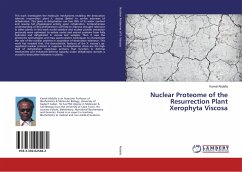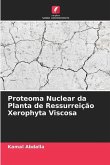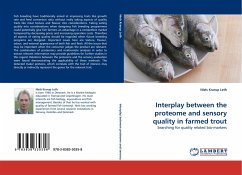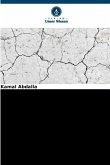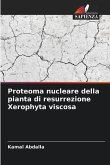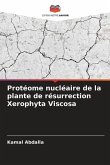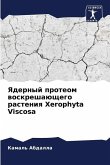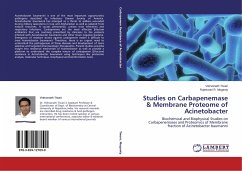This work investigates the molecular mechanisms enabling the desiccation tolerant resurrection plant X. viscosa (Baker) to survive extremes of dehydration. This plant in dehydration can lose 95% of its water content and resume full physiological activity upon rehydration. Comprehensive understanding of this phenomenon will help to improve drought tolerance in other plants. In this work nuclei isolation and nuclear protein extraction protocols were optimized to isolate nuclei and extract proteins from fully hydrated and dehydrated X. viscosa leaf samples. Then it uses the proteomic technologies and mass spectrometric techniques to characterize the role of the nuclear proteins in acquisition of desiccation tolerance. This work has revealed that, the characteristic features of the X. viscosa's up-regulated nuclear proteins in response to dehydration stress are the high level of dehydration responsive proteins that function in defense mechanisms and enhanced defense capacity under dehydration stresses is crucial to desiccation tolerance in plants.

